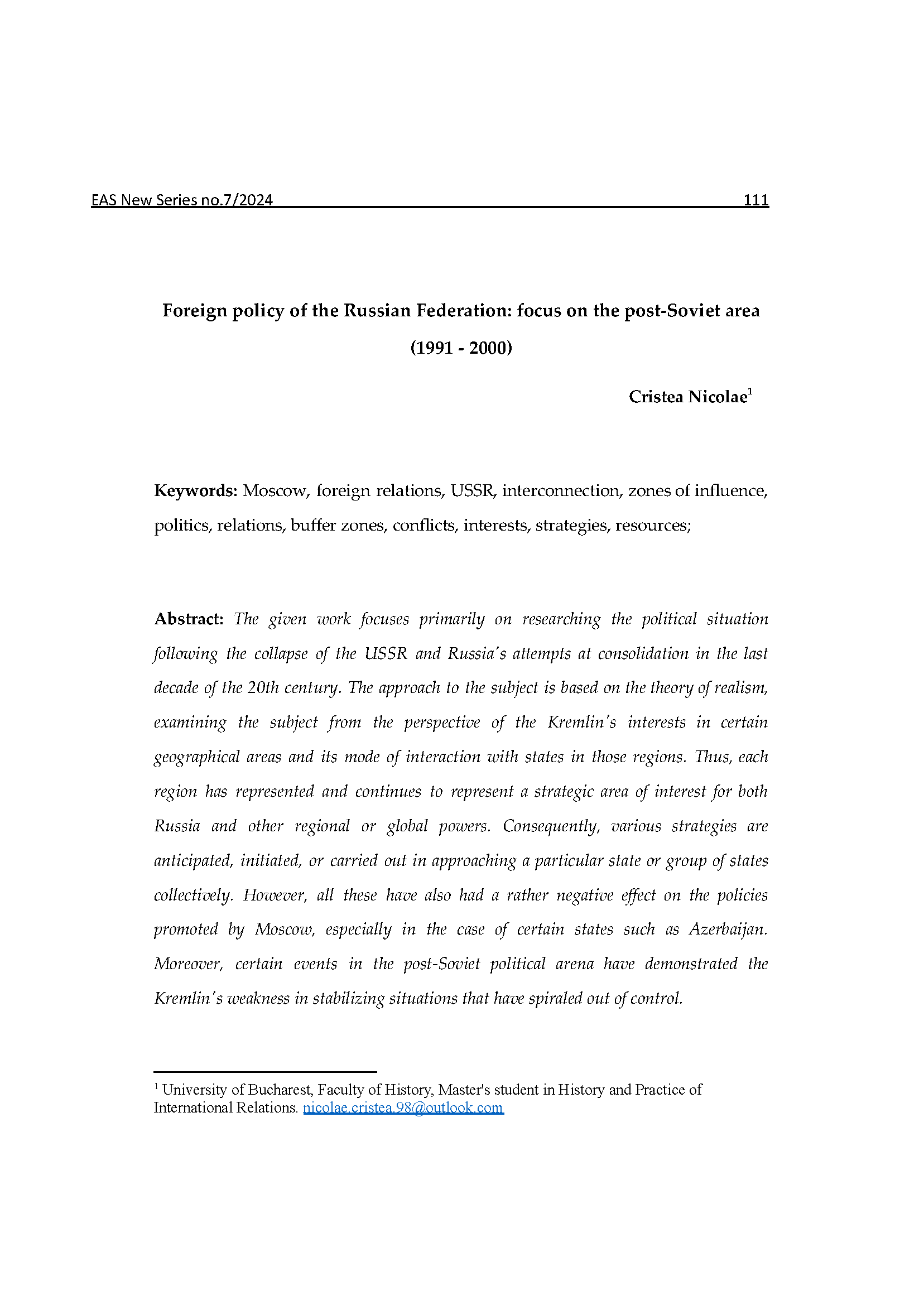Foreign policy of the Russian Federation: focus on the post-Soviet area (1991 - 2000)
DOI:
https://doi.org/10.31178/eas.2024.7.4Keywords:
Moscow, foreign relations, USSR, interconnection, zones of influence, politics, relations, buffer zones, conflicts, interests, strategies, resourcesAbstract
The given work focuses primarily on researching the political situation following the collapse of the USSR and Russia's attempts at consolidation in the last decade of the 20th century. The approach to the subject is based on the theory of realism, examining the subject from the perspective of the Kremlin's interests in certain geographical areas and its mode of interaction with states in those regions. Thus, each region has represented and continues to represent a strategic area of interest for both Russia and other regional or global powers. Consequently, various strategies are anticipated, initiated, or carried out in approaching a particular state or group of states collectively. However, all these have also had a rather negative effect on the policies promoted by Moscow, especially in the case of certain states such as Azerbaijan. Moreover, certain events in the post-Soviet political arena have demonstrated the Kremlin's weakness in stabilizing situations that have spiraled out of control.





